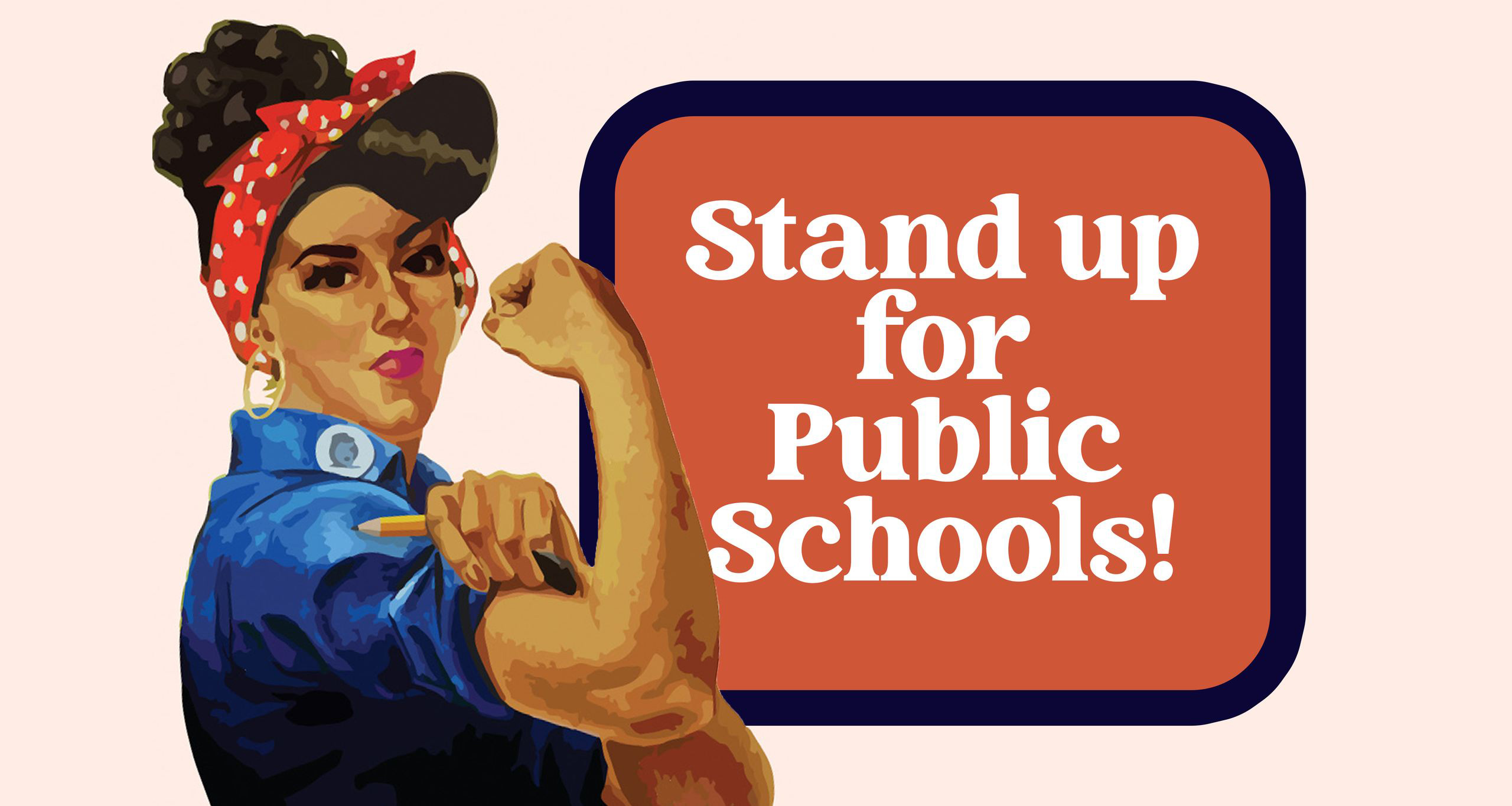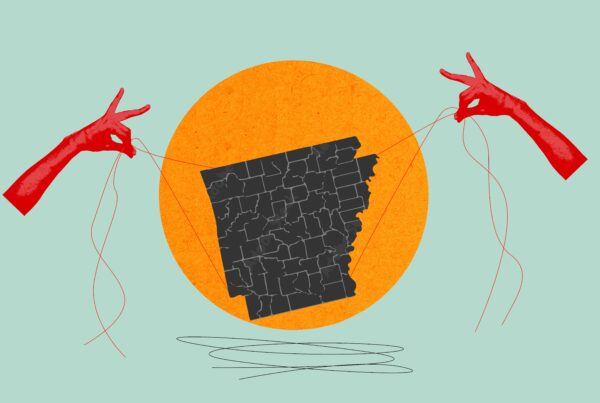It’s still a scam.
When legislators approved Sarah Sanders’ omnibus education bill two years ago, they added a requirement that the state must release an annual report by September 30th. The report should contain essentially all relevant data about LEARNS: how many people are using it, how well the students and schools are doing, retention rates, parental satisfaction, you name it, the report is supposed to have it.
As the Arkansas Times reported yesterday, October 24th, despite being almost a month past the due date, the report has yet to materialize.
What an apt metaphor for the program.
Two years in, we thought it’s time we take stock of the program and how things are going. You’ll all be shocked to discover that the answer is “not well.”
LEARNS, Briefly Explained
Here’s a very quick reminder how the program works. Students can enroll in “educational freedom accounts” (these are vouchers and the name is quite misleading) to cover the costs of private schools. All available spots for the ‘24-25 school year have been filled, and any student will be eligible for the program starting in 2025-2026 school year.
Vouchers, however, are comparable to vampires: they suck all the life out of public education. There is, after all, only so much money to go around. Sanders claims that any student can make use of the program, but here’s just one of many issues with that statement: in a highly rural state like ours, many students do not have access to private schools to make use of the voucher accounts. If there’s not a private school near you, the program is basically useless.
This means that while already-well off students in urban areas use up tax dollars they don’t need while taking away money from poorer, rural students that do need it. We’ve known this part since the beginning of LEARNS, and the first annual report last fall confirmed it.
A few other important provisions in the law: the base pay for teachers is now $50,000 and students have to complete a required number of “community service” hours. Again, students in rural districts have been having tons of trouble finding qualifying service opportunities. We were early advocates of higher teacher pay, but the implementation via LEARNS has attracted criticism because the state does not fully fund those raises, which again puts the burden disproportionately on poorer, rural districts. The state also implemented merit pay in an attempt to retain more educators, but that doesn’t pass the smell test.
Shocker.
Vouchers Around the Country
Other states across the country have implemented voucher programs and they’ve been universally a disaster. They exploded Arizona’s budget after taxpayers footed the bills for ski trips and golf equipment, so I guess Sarah Sanders isn’t actually that concerned with balanced budgets. In Iowa, Odyssey, a company handling voucher transactions, raked in “hundreds of thousands of dollars more” than the original contract proposed. The Ohio voucher program has cost taxpayers an eye-watering one billion dollars. Just about every state that’s implemented voucher programs has seen similar financial problems.
We could maybe stomach a massively increased budget if it resulted in good educational outcomes for students. Aren’t our students worth the sacrifice?
Well, they absolutely are. Alas, however, the data show quite the opposite.
I should note at the outset educational outcomes aren’t always easily quantified; There are tons of variables that can’t really be controlled for, educational success often looks different for different students, and it’s just hard to pin this stuff down.
That being said, the data indicate that vouchers lower academic achievement for most students, and, surprise, the effect tends to be worse for rural students. This isn’t just for test scores, either; other studies have shown that vouchers also negatively impact the more “intangible” markers of academic achievement like extracurriculars, mental health, college acceptance rates, and more.
Vouchers don’t help students. But Sanders doesn’t care, because her buddies benefit.
A few examples of LEARNS failures
After two years, however, more folks in Arkansas are starting to ask questions about LEARNS, its efficacy, and its administration. Jacob Oliva’s recent egg-on-face moment when he was forced to cancel the contract of Student First Technologies, the company originally hired as the voucher vendor, is just the latest in a long line of embarrassing moments for the law.
LEARNS lowered the disability standards for EFA applications, which let private school families use vouchers early. There’s no fairness here, because the law was never intended to help the neediest students. In fact, it raised prices for parents with disabled students. Let that sink in for a moment.
Let’s zero in on rural districts. This spring, Oliva mentioned that the Department of Education was considering “reevaluating” funding for educational cooperatives. Lawmakers across the aisle and educators immediately raised concerns because these co-ops are often the only option for rural students.
With reduced funding, students outcomes for co-ops will almost certainly drop precipitously, creating a “death loop” where the state further reduces funding because outcomes are dropping. Poor outcomes means the state should give more money to low-performing districts to acquire teachers and better equipment. Alongside that money, of course, should come increased oversight to ensure it’s being spent wisely, but guess what! LEARNS massively reduces the opportunity for state oversight, especially for private schools that receive state dollars.
Even Sanders allies are starting to ask hard questions
We reported early on in the 2023 General Session that lawmakers had been bullied into supporting LEARNS, despite significant concerns over how long the bill was, how little time the legislature had to read it, and how little public input was allowed. Those concerns have been borne out, as we’ve showed, but something feels like it’s starting to shift with former LEARNS supporters.
In several meetings over the past few months, we’ve noticed lawmakers start to get concerned about the program, most notably its price tag. Democrats in the legislature have universally opposed LEARNS, with a few Republicans joining them. Rep. Wooten and Senators King and Hickey are the loudest opponents; two other GOP reps did cast Nay votes in ‘23.
Few other Republican legislators have explicitly come out against LEARNS, but they’re starting to talk like they’re aware of the out-of-control train barreling toward the state’s budget. Sens. Hammer and Rep. Wardlaw are some examples of people who originally voted yes but who, if you’ll allow some serious reading between the lines, have started to show real concern about how LEARNS has been handled and how the state will continue to fund it, especially during this spring’s fiscal session.
Given the fact that $100 million dollars of next year’s budget – almost the entire 1.76% increase – is going straight into LEARNS’ pockets, they’re right to be concerned.
Whether they’ll stand up in the ‘25 General Session and have the humility to say “we were wrong,” I can’t say, but I won’t be holding my breath. If they do, it’s unlikely the law will get repealed full stop, so we’d also have to wait and see how they might try to tweak it to clean up this mess.
Two years ago, experts and advocates warned Sanders the law was too big, too unwieldy, poorly conceived, and rushed. She didn’t listen.
Now, Arkansas students and taxpayers are paying the price.





